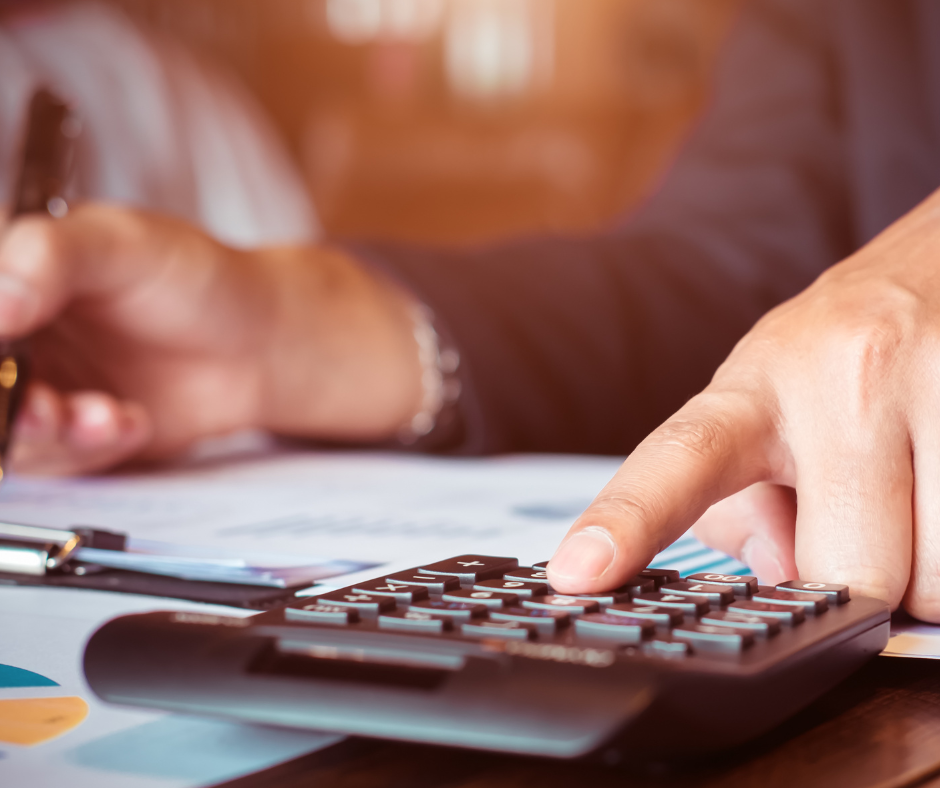
Accounting is a quantitative and analytical field that involves recording, classifying, and summarising financial transactions. To become an accountant, you need to have strong maths skills, a working knowledge of accounting principles, and the ability to write complex reports.
How To Become An Accountant
Becoming an accountant requires education, training, and professional certification.
Here are the steps to becoming an accountant:
- Obtain a Bachelor’s degree: To become an accountant, you must earn a Bachelor’s degree in accounting, finance, or a related field. Some universities may also offer an accounting program accredited by a recognised accounting body.
- Gain experience: While earning a degree, it is recommended that you gain experience by taking part in internships or co-op programs. This will provide you with real-world experience and help you build your resume.
- Pass the CPA exam: To become a Certified Public Accountant (CPA), you must pass the Uniform CPA Exam. The CPA exam is a four-part exam that covers auditing and attestation, business environment and concepts, financial accounting and reporting, and regulation.
- Get licensed: After passing the CPA exam, you must obtain a licence to practise as a CPA in your state. The requirements for licensure vary by state, so it is important to check with your state board of accountancy for specific requirements.
- Consider a specialisation: Many accountants specialise in a particular area, such as tax accounting, forensic accounting, or management accounting. Consider obtaining additional certifications or education in your chosen area of specialisation.
- Stay up-to-date: Accounting regulations and laws are constantly changing, so it is important to stay up-to-date on the latest developments. Consider joining a professional organisation, attending conferences, or taking continuing education courses to stay current.
What To Expect As An Accountant
As an accountant, you can expect a variety of responsibilities and duties depending on your role and the type of organisation you work for.
Here are some common expectations of accountants:
- Financial reporting: Accountants are responsible for preparing financial reports that accurately reflect the financial position of an organisation. This may include preparing balance sheets, income statements, and cash flow statements.
- Tax preparation: Many accountants specialise in tax preparation, helping individuals and organisations navigate the complexities of the tax code and ensure compliance with tax regulations.
- Auditing: Accountants may also be involved in auditing financial statements to ensure accuracy and compliance with accounting standards and regulations.
- Budgeting and forecasting: Accountants may be involved in developing budgets and forecasts for an organisation, helping to ensure that the organisation is financially stable and able to achieve its goals.
- Data analysis: Accountants often work with large amounts of financial data, analysing trends and patterns to provide insights that can inform business decisions.
- Client management: If you work in public accounting, you may be responsible for managing relationships with clients, providing guidance and advice on financial matters, and helping ensure their financial operations are running smoothly.
- Continuing education: To maintain your professional certifications, you must participate in ongoing continuing education and stay up-to-date on the latest accounting standards and regulations.
Other Types of Accounting Certifications
In addition to the Certified Public Accountant (CPA) certification, several other types of accounting certifications may be relevant to your career goals.
Here are some of the most common accounting certifications:
- Certified Management Accountant (CMA): The CMA certification is designed for accountants who work in management accounting roles, such as financial planning and analysis, budgeting, and forecasting. The certification is offered by the Institute of Management Accountants (IMA) and requires passing a two-part exam and meeting specific educational and experience requirements.
- Certified Internal Auditor (CIA): The CIA certification is designed for accountants who work in internal auditing roles, such as conducting risk assessments, reviewing financial controls, and ensuring compliance with regulations. The certification is offered by the Institute of Internal Auditors (IIA) and requires passing a three-part exam and meeting specific educational and experience requirements.
- Certified Information Systems Auditor (CISA): The CISA certification is designed for accountants who work in information technology auditing roles, such as evaluating and testing IT systems to ensure security and compliance with regulations. The certification is offered by the Information Systems Audit and Control Association (ISACA) and requires passing a single exam and meeting specific educational and experience requirements.
- Accredited in Business Valuation (ABV): The ABV certification is designed for accountants who work in business valuation roles, such as estimating the value of a business or its assets for mergers and acquisitions, litigation, or other purposes. The certification is offered by the American Institute of Certified Public Accountants (AICPA) and requires passing a single exam and meeting specific educational and experience requirements.
- Certified Fraud Examiner (CFE): The CFE certification is designed for accountants who work in fraud investigation and prevention roles, such as identifying and investigating instances of fraud, embezzlement, or other financial crimes. The certification is offered by the Association of Certified Fraud Examiners (ACFE) and requires passing a single exam and meeting specific educational and experience requirements.
What Skills Do You Need To Get An Accounting Job?
To get an accounting job, you will need to possess a range of technical and soft skills.
Here are some of the most important skills for accounting jobs:
- Attention to detail: Accounting requires a high degree of accuracy and attention to detail, as even small errors can have significant consequences.
- Analytical skills: Accountants need to be able to analyse financial data and identify patterns and trends that can inform business decisions.
- Maths skills: Accountants must have a strong foundation in mathematics, including basic arithmetic, algebra, and calculus.
- Computer skills: Accountants need to be comfortable using a variety of software programs, including spreadsheets, accounting software, and database applications.
- Communication skills: Accountants need to be able to communicate effectively with clients, colleagues, and other stakeholders, both verbally and in writing.
- Time management: Accountants often work on multiple projects at once and need to be able to manage their time effectively to meet deadlines.
- Ethics: Accountants are responsible for handling sensitive financial information and must adhere to high ethical standards and professional codes of conduct.
- Problem-solving skills: Accountants need to be able to identify problems and develop solutions to help clients or their organisations overcome financial challenges.
- Organisation skills: Accountants need to manage large amounts of financial data and ensure that records are kept accurately and up-to-date.
Overall, to succeed in an accounting job, you must possess a combination of technical skills, such as maths and computer skills, and soft skills, such as communication and problem-solving skills. You will also need to stay up-to-date on the latest accounting standards and regulations and be committed to ongoing professional development.
Conclusion

In conclusion, accounting is a great way to get started in finance. Many schools and programs can teach you the necessary skills, and the career options are endless. So if you’re interested in getting into accounting, start by researching and find the right program for you!
FAQS
How can I start a career in accounting?
First and foremost, you need the relevant education, training and certifications. Obtain a bachelor’s in accounting, finance or related field. Next, gain experience such as an internship. Then, pass the CPA exam. Finally, get a licence to practise as a CPA. Aim to get plenty of experience, apply to many companies until you get your foot in the door. At this point, the possibilities are endless.
What GCSEs are required to work as an accountant?
Employers frequently look for applicants with 280+ UCAS points in A-levels and at least a B in GCSE English and Math. (or their equivalents).
Is it challenging to find employment in accounting?
Finding your first accounting job might be difficult. Businesses favour candidates with experience. Fortunately, there are plenty of opportunities. The key is to be persistent and market yourself well. Create a CV and apply to many internships and companies until you get a foot in the door. Once you get your first role, learn as much as you can and work diligently. This will enhance your resume and provide you with valuable experience that will open up many more opportunities. By using these tips and following the guide above, you will stand out above other candidates and companies will be eager to employ you.






